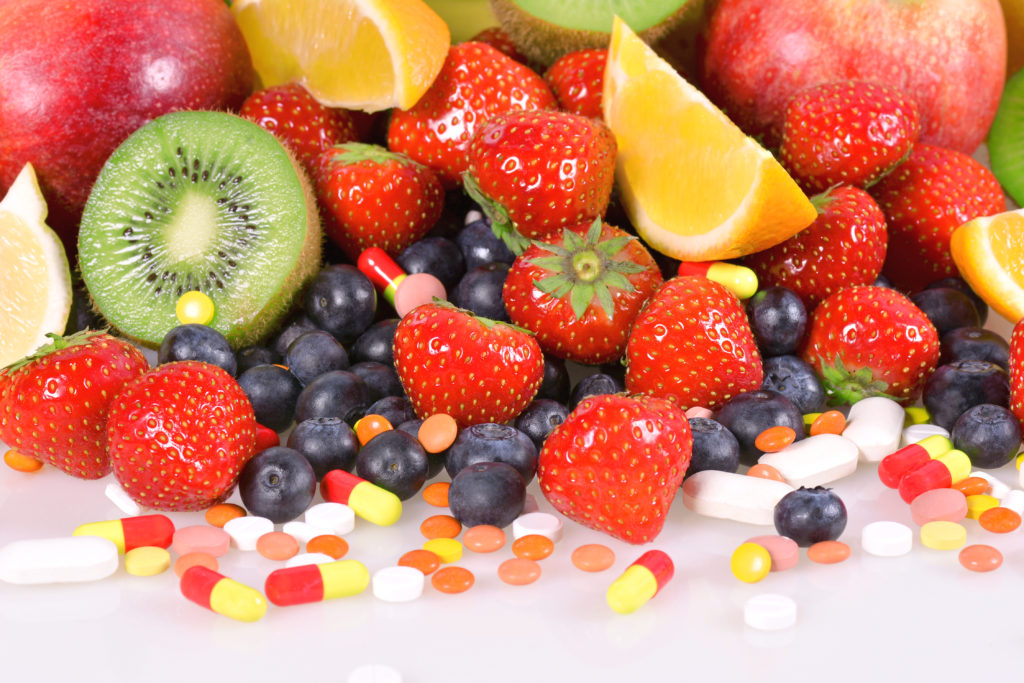Sadly, America is overfed but malnourished. Despite the excessive food intake, the standard American diet leaves us with a lot of deficiencies. We do need a variety of nutrients each day to stay healthy, but since they are lacking in our diets, more than half of us take supplements. Some of us even take them not just to make up for what we’re missing, but also to give ourselves an extra health boost.

Fact is, the source of these nutrients is important. Nature is well designed and our bodies know how to use things nature makes. As powerful as the human mind might be, we have not yet and probably never will be able to fully understand the complexity of nature and its mechanisms. Fruits, veggies, fish, meat, eggs, and other natural foods contain nutrients and other substances that work together and that are not found in a pill. We don’t get the same synergistic effects from supplements as we do from natural produce. Therefore, it is really crucial to get these vitamins and minerals from foods and not rely on supplements while eating a diet that is neither nourishing nor immune boosting.
Nutrient we need and their food sources
Calcium: dark leafy greens, sardines, tofu, dairy
Folic acid: spinach, lentils, beef liver
Iron: Oysters, chicken liver, turkey
Omega-3 fatty acids: Fish, flaxseed, walnuts, soybeans
Vitamin A: Sweet potato, spinach, carrots, cantaloupe, tomatoes
Vitamin B6: Chickpeas, salmon, chicken breast
Vitamin B12: Clams, beef liver, trout
Vitamin C: citrus fruit
Vitamin D: Salmon, tuna, yogurt
Vitamin E: Wheat germ oil, almonds, sunflower seeds, peanut butter
Americans spend billions of dollars every year on supplements
Unfortunately however, many of these products do not live up to the advertised claims of improving health, fitness, sleep, memory, or help with weight loss. Even the FDA warns consumers about tainted, dangerous products that are marketed as dietary supplements (3).
Are supplements good for children?
Supplements can be especially unsuitable for children. Let’s take a look at probiotics for example. A probiotic supplement contains somewhere between 1 to 25 bacterial strains. There are about 300 to 1000 known species of bacteria in our gut, providing many different substances, many of which we do not yet know about and many ways of action of which we are not aware. Obviously, the children will not be getting the needed diversity. Also, there are hundreds of different brands. Many of them are questionable in quality. So, even though sometimes taking probiotic supplements may be helpful, it is not enough. It is our job as parents to teach them to eat probiotic rich foods rather than take probiotic supplements. And even more important, rather than teaching our children to take powders or pills from a very young age, teaching them about proper nutrition is definitely a better choice.
Another example are vitamin gummies. They look like candy, are high in sugar, sometimes even high fructose corn syrup, contain artificial flavors, colors, preservatives and fillers, have unreliable nutrient content, and are contaminated with impurities. Gummy fruit snacks are a perfect example of an unhealthy snack marketed as healthy!
So, more than any kind of supplements, our children need real food with real nutritional value and immune boosting effects.
Teach them early on, they will be grateful to you for life!
(1) https://www.health.harvard.edu/staying-healthy/dietary-supplements-do-they-help-or-hurt




